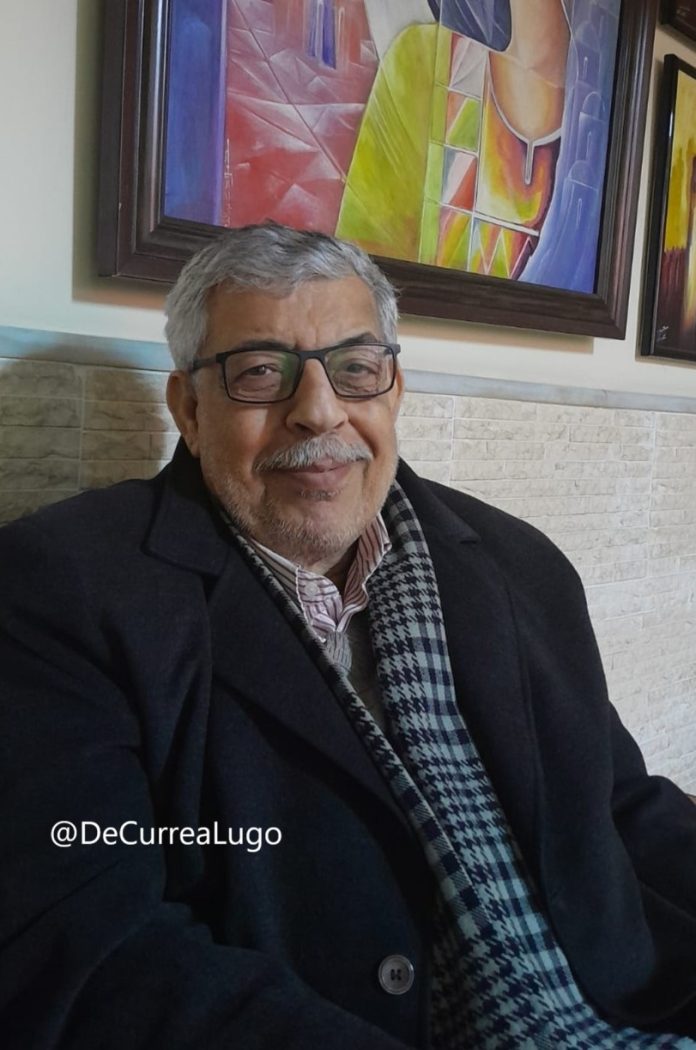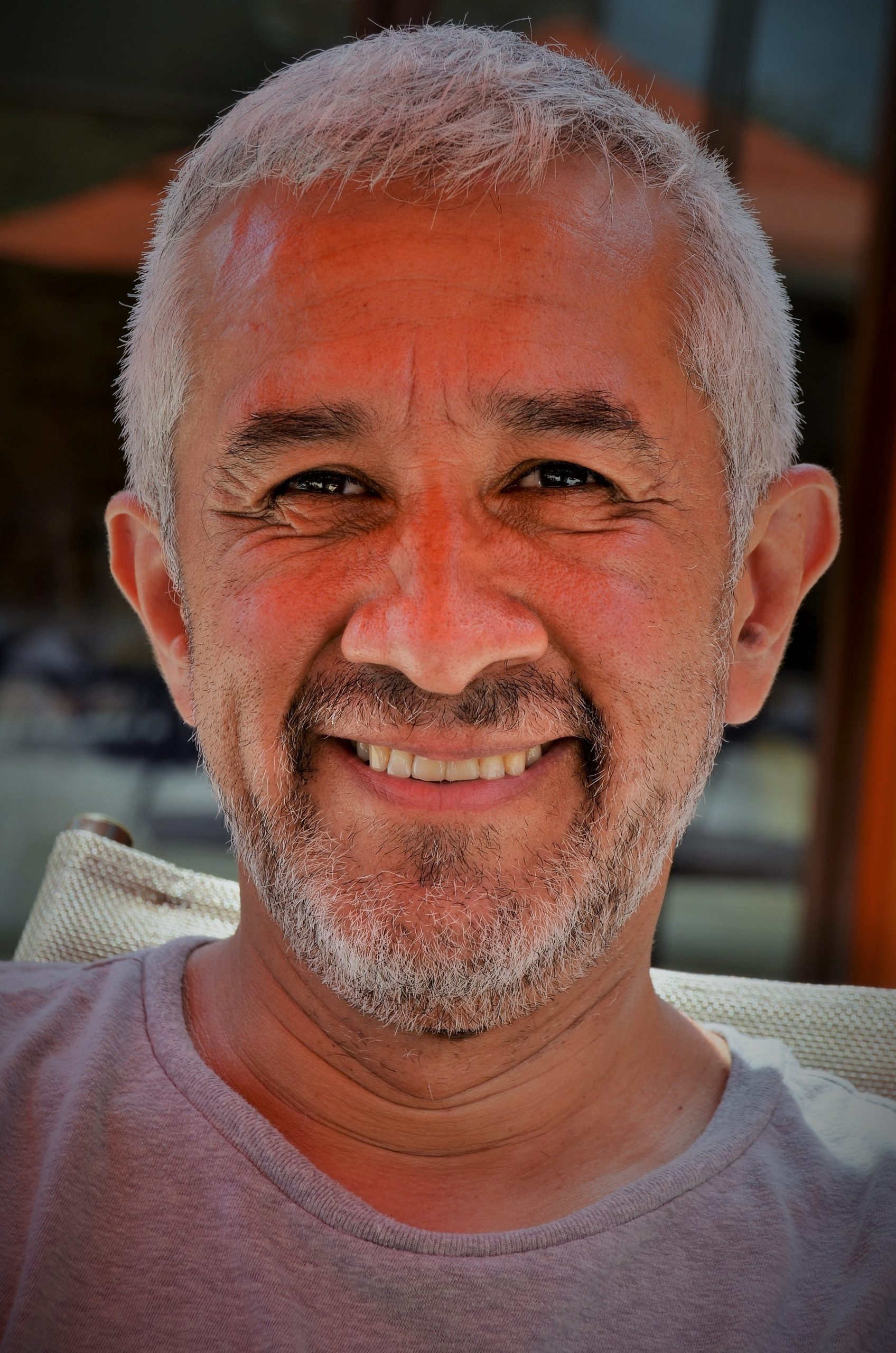Interview with Mutasem Hamada from the DFLP
Victor de Currea-Lugo (from Damascus) | February 16, 2025
After the expulsion of Palestinians from historic Palestine in the 1948 war, many came to Syria and set up refugee camps. The largest was Yarmouk, in Damascus.
We spoke in Damascus with Mutasem Hamada about the fall of the Syrian government. The DFLP is a Marxist organization and is part of the resistance fighting Israel in Palestine.
He is a member of the Political Bureau of the Democratic Front for the Liberation of Palestine (DFLP). He has lived in Syria for decades and has formed an opinion on reality.
My first question was about the genuine commitment of Hafez al-Assad and Bashar al-Assad to protecting the Palestinian people.
He explains to me that “the law supporting the Palestinian refugees goes back to the 1950s, long before the Assads. This law establishes a balance between Palestinians and Syrians. This law recognized the right to education, work, and health. This right to work was formal, but in practice, it was easier for Syrians to access jobs than for Palestinians».
However, the law also established political restrictions, such as election participation. “No one could say anything against the government.” Many Palestinians were even in prison, many. “We had no right to speak at a political level, to object.»
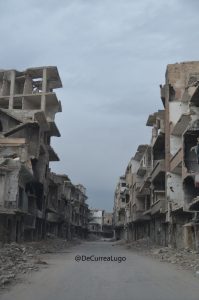
«When there were tensions between Assad and Arafat [the historic Palestinian leader], they charged the Palestinians.” Yet, despite these challenges, the Palestinians remained resilient, a testament to their strength in the face of adversity.
I explained to him that all the time, in the media, they present the Syrian government as a strong support for the Palestinians. And he tells me, “The title of support for the Palestinians is just a title; the practical support is something else. The support is on paper, but in practice, it is false. In practice, we are like a demon.”
The jobs to Palestinians were given not as Palestinians but as members of the Baath political party [the country’s sole party]. Even to work at UNRWA [the UN agency for Palestinian refugees], you had to join the president’s political party, and 90% of Palestinians were not affiliated with that party, Mutasem explains to me.
I ask about the position of the Palestinians in 2011 when the demonstrations against Bashar al-Assad began. He tells me that the Palestinian organizations were divided, some in favor and others against, and even within them, there were differences. Some took sides, and others insisted that “we should not be part of the Syrian conflict; we should not be part of the bloodshed of the Syrians.”
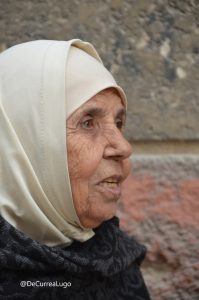
These discussions took place in the Yarmouk camp, south of Damascus. Mutasem explains to me that “most Palestinians did not have any involvement with the revolution, nor did they have any involvement with the Syrian state, but the Syrian government closed the camp and surrounded it, surrounded it.”
He explains to me that, in the first months of 2011, in many areas with Palestinian majorities and, especially in the Yarmouk camp, “before the war began [June 2011], almost every night, people went out to protest against Bashar al-Assad, against the regime.”
Bashar’s government ordered them to move. “The state asked the inhabitants of the Yarmouk camps to go to the nearby camps, and for a week, they bombed this camp. In this way, they destroyed 90% of the Palestinian refugee camps.”
He insists on something that I have heard from other interviewees: “Some people said that Bashar al-Assad was convenient for Israel. Never attacked Israel, never after the Purple Line agreement that was ratified in 1974, there was not a single shot fired against Israel.”
After the fall of the Syrian government
No one imagined last November that, in a few days, the Al-Assad government would fall. He tells me, » After the fall of the Syrian government, we had mixed feelings: joy for the end of a corrupt and unjust regime; but, on the other hand, there is concern for the future of this country.”
The ruling coalition has everything, even radical Islamists. He recognizes that al-Yulani has a significant challenge: «He is in a difficult position; he faces many difficulties in achieving his goals. There are 47 groups in power, not just one. There may be disputes between the different groups.” He is concerned about women’s rights in the new government. “We need the rights of Syrian women to be maintained.”
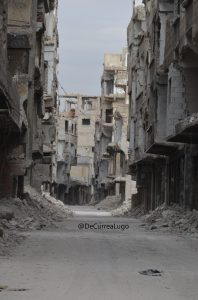
The Syrians interviewed confirmed the resounding price fall and the Palestinian leader confirmed it. Typically, in times of crisis, prices skyrocket, and hoarding increases. But after Al-Assad left office, he explained that “a kilo of sugar was 14,000 liras, and then it went down to 8,000 liras.” The same goes for gasoline, electricity, gas, and all products. It is usual to see the old and current prices in the shops.
A recurring theme is the possible fracture of Syria, but he clarifies to me that “Syria is a country of minorities,” so there is not just one Syria; there are the Druze, the Alawites, the Sunnis, the Kurds, the Christians. He insists that the objective must be to think beyond the minorities of “one people, one system, and one country.”
In this regard and relation to the Kurds, he tells me that “we agree, for example, with the right of the Kurds to maintain education in their language and all their other rights, as long as that does not lead to the partition of Syria.”
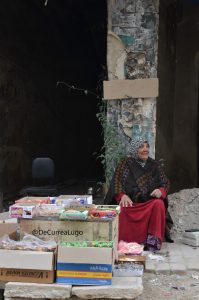
The last question concerns the new government’s position on the Palestinian issue. “We know part of the new government; we met with them in Yarmouk. They told us we could do everything in Yarmouk but not military activities. We can do education, electricity, water programs.”
The DFLP “has asked for a dialogue on the Palestinian issue; we told Ramallah [the Palestinian Authority] to send a delegation and that we, as the DFLP, can participate in this delegation, but Ramallah has not made a decision.”
The next day of the interview, I visited the Yarmouk camp south of Damascus; I interviewed some old Palestinians who insisted on Bashar al-Assad’s violent repression against the Palestinians.
They repeated what I have already heard from many Syrians: the rain of barrels of explosives from helicopters on populated civilian areas. Here are some photos so you can get an idea of the level of destruction.


